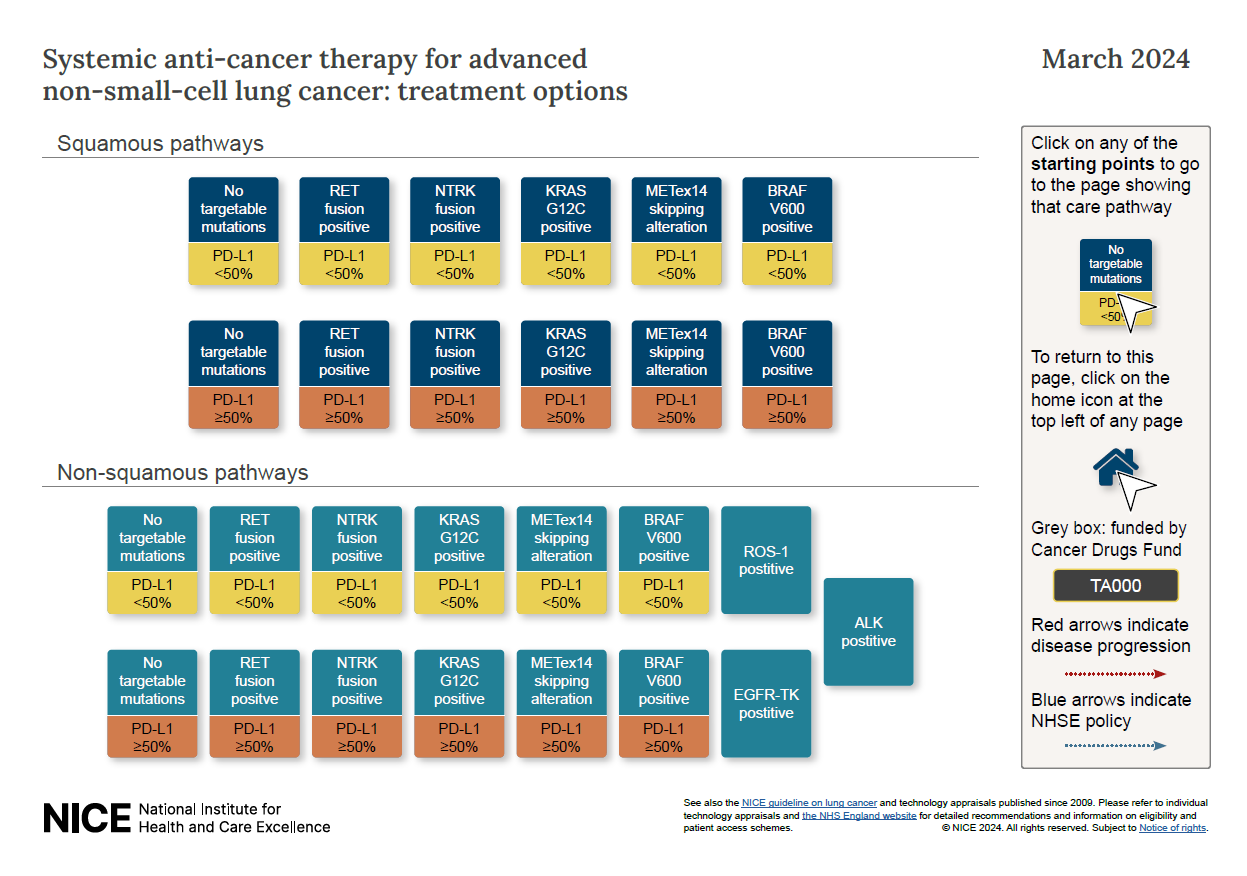Overview
This guideline covers diagnosing and managing non-small-cell and small-cell lung cancer. It aims to improve outcomes for patients by ensuring that the most effective tests and treatments are used, and that people have access to suitable palliative care and follow-up.
Last reviewed: 8 March 2024
We updated the systemic anti-cancer therapy treatment pathways for advanced non-small-cell lung cancer following the withdrawal of the NICE technology appraisal guidance on mobocertinib. See update information for more details.
This guideline updates and replaces NICE guideline CG121 (April 2011).
Next review: This guideline will be reviewed if there is new evidence that is likely to change the recommendations
How we prioritise updating our guidance
Decisions about updating our guidance are made by NICE’s prioritisation board. For more information on the principles and process, see NICE-wide topic prioritisation: the manual.
For information about individual topics, including any decisions affecting this guideline, see the summary table of prioritisation board decisions.
Recommendations
This guideline includes recommendations on:
- Access to services and referral
- Communication
- Diagnosis and staging
- Treatment
- Palliative interventions and supportive and palliative care
- Follow-up and patient perspectives
Who is it for?
- Healthcare professionals
- Commissioners and providers
- People with lung cancer and their families and carers.
Guideline development process
How we develop NICE guidelines
Your responsibility
The recommendations in this guideline represent the view of NICE, arrived at after careful consideration of the evidence available. When exercising their judgement, professionals and practitioners are expected to take this guideline fully into account, alongside the individual needs, preferences and values of their patients or the people using their service. It is not mandatory to apply the recommendations, and the guideline does not override the responsibility to make decisions appropriate to the circumstances of the individual, in consultation with them and their families and carers or guardian.
All problems (adverse events) related to a medicine or medical device used for treatment or in a procedure should be reported to the Medicines and Healthcare products Regulatory Agency using the Yellow Card Scheme.
Local commissioners and providers of healthcare have a responsibility to enable the guideline to be applied when individual professionals and people using services wish to use it. They should do so in the context of local and national priorities for funding and developing services, and in light of their duties to have due regard to the need to eliminate unlawful discrimination, to advance equality of opportunity and to reduce health inequalities. Nothing in this guideline should be interpreted in a way that would be inconsistent with complying with those duties.
Commissioners and providers have a responsibility to promote an environmentally sustainable health and care system and should assess and reduce the environmental impact of implementing NICE recommendations wherever possible.
